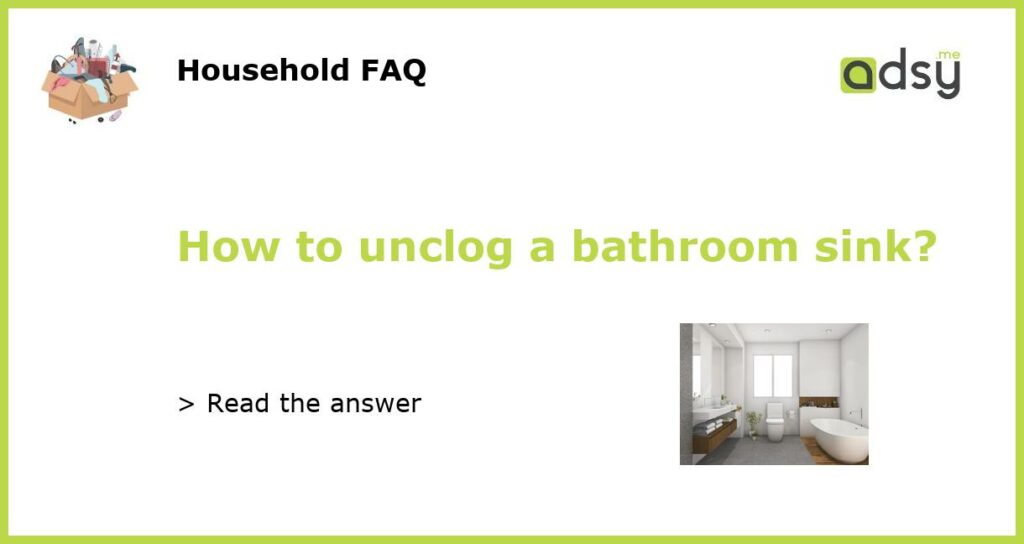Understanding the common causes of a clogged bathroom sink
A clogged bathroom sink can be a frustrating problem to deal with. However, understanding the common causes can help you prevent future clogs and effectively unclog your sink. The most common causes of a clogged bathroom sink include:
- Hair: Hair strands can easily get trapped in the drain pipe, leading to a clog over time.
- Soap residue: Soap scum can accumulate in the drain pipe, causing it to narrow and restrict water flow.
- Toothpaste and toothbrush debris: Small pieces of toothpaste and toothbrush bristles can build up in the drain pipe and contribute to clogs.
- Dirt and other debris: Dirt, skin cells, and other debris can accumulate in the drain pipe and cause blockages.
Basic unclogging methods
If you notice that your bathroom sink is draining slowly or completely clogged, there are a few basic unclogging methods you can try before resorting to harsh chemical cleaners or calling a professional plumber:
- Use a plunger: Place a plunger over the drain and create a seal. Pump the plunger up and down vigorously to dislodge the clog.
- Remove the pop-up stopper: Unscrew or lift the pop-up stopper to access the drain pipe. Clean any debris and reinsert the stopper.
- Try a drain snake: Feed a drain snake or wire into the drain pipe and twist it to break up the clog or pull it out.
Natural remedies to unclog a bathroom sink
If the basic unclogging methods don’t work or if you prefer using natural remedies, there are several options to try:
- Vinegar and baking soda: Pour a mixture of equal parts vinegar and baking soda down the drain, followed by hot water. Let it sit for a few minutes before flushing with more hot water.
- Boiling water: Carefully pour boiling water down the drain in multiple stages to dissolve a clog.
- Salt and hot water: Mix a 1/2 cup of salt with hot water and pour it down the drain. Let it sit for a few minutes before flushing with hot water.
Using chemical cleaners cautiously
If the clog persists after trying natural remedies, you may consider using a chemical cleaner. However, it’s important to use them cautiously:
- Follow instructions: Read and follow the instructions provided with the chemical cleaner carefully.
- Protect yourself: Wear rubber gloves and eye protection when handling chemical cleaners.
- Ventilate the area: Open windows or use fans to ensure proper ventilation while using chemical cleaners.
- Avoid mixing cleaners: Never mix different chemical cleaners, as it can create toxic fumes.
- Consider eco-friendly alternatives: Look for eco-friendly or biodegradable options to minimize environmental impact.
When to call a professional plumber
If all else fails or you’re uncomfortable attempting to unclog the sink yourself, it may be time to call a professional plumber. They have the experience and tools necessary to handle more stubborn clogs and ensure the proper repair of your bathroom sink. Additionally, if you’re dealing with recurrent clogs, it could be a sign of a more serious issue, such as a damaged or misaligned pipe, which should be addressed by a professional.

